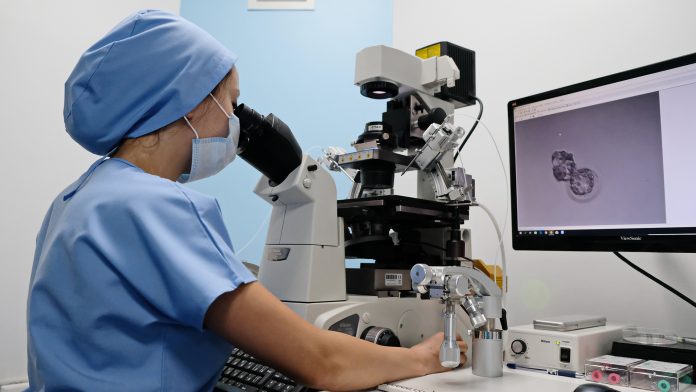
A University of Oxford study identifies genetic determinants that could influence fertility and reproductive behaviour in humans.
In the largest study to date, research has shown the number of children an individual has may have been influenced by reproductive biology and human behaviour. The study was led by researchers at the Universities of Cambridge, Oxford, and Pennsylvania; they identified the human genome has been influenced by natural selection for thousands of years and continues to affect fertility.
Professor Melinda Mills, Director of Oxford’s Leverhulme Centre for Demographic Science, commented: “This study is of interest to understanding changes in human reproduction over longer periods, reproductive biology and potential links to infertility.
“It also empirically tests one of the most gripping and fundamental questions asked by scientists across many disciplines and decades: Is there evidence of ongoing natural selection in humans and, if so, what is it and how does it operate?”
A major study analysing data from 785,604 individuals
The major study, published in Nature Human Behaviour, used data from 785,604 individuals of European ancestry, including individuals in the UK Biobank study, to identify 43 regions of the genome containing genetic variants associated with reproductive success, defined as the number of children ever born to an individual.
Some findings highlight trade-offs across the life course, for example, the researchers found variations in the gene ARHGA27 that were associated with having more children but also with a shorter lifetime window of fertility. Furthermore, the analysis also suggested a novel role for the red hair colour gene, melanocortin 1 receptor (MC1R) in reproductive biology. The genetic evidence does suggest the influence on the number of children is not related to the same genetic mechanisms that affect pigmentation.
Professor John Perry, MRC Epidemiology Unit, University of Cambridge, noted: “This study is the largest of its kind and has highlighted new biology that we anticipate will help identify novel therapeutic targets for reproductive diseases such as infertility. It will also help us better understand the biological mechanisms that link reproductive health to broader health outcomes in men and women.”
Integrating modern genomes with ancient genomes to understand fertility
The team integrated their findings about modern genomes with ancient genome data, the researchers identified a region of the genome that has been under selection for thousands of years and remains under selection today. The genes in this region called FADS1 and FADS2 are involved in synthesising specific fats that are important for health and seem to have played an important role in helping Europeans with adapting to an agricultural diet. The observation that these genes still affect fertility suggests this adaptation could be ongoing.
Dr Iain Mathieson, Department of Genetics, University of Pennsylvania, points out, “Independent evidence shows the FADS region has been under selection in Europe for thousands of years. It represents the clearest example of a genetic variant with evidence of both historical and ongoing natural selection, though the reason for selection remains unclear.”
























